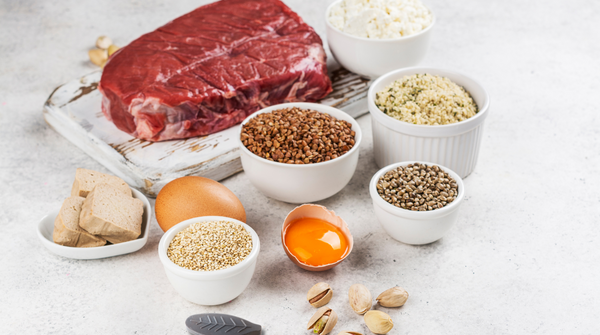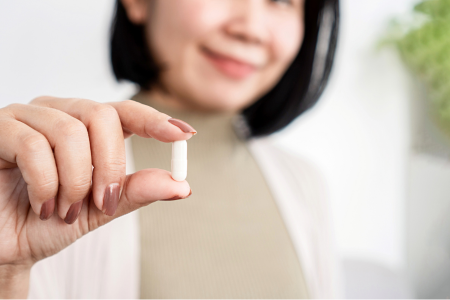Tired of Being Tired? How to Optimize Your Iron Levels To Be Your Best Self

Have you been feeling overly tired recently? Does it feel like you can’t do the daily activities that you used to manage easily before? Feeling extra exhausted may be linked to an iron deficiency. Get yourself checked by a doctor and if low iron levels are the root of the problem, here are a few steps that you can take to optimize your iron levels:
1. Supplement Your Iron Intake
If you are unable to get the amount of iron your body needs via foods, you probably need to look into iron supplementation. Lucky Iron Fish is a great source of natural iron and does not cause any side effects. Best part is that you don't need to remember to take any pills or worry about the best time of day to take your supplements. With the Lucky Iron Fish, you can simply add it to any foods you are already making and it will infuse your daily meals or beverages with easily absorbable iron!
2. Increase Intake of Heme Rich Food
Heme iron is one of the two types of dietary iron. If you are not a vegetarian, you can increase the frequency and quantities of heme rich food, which are all from meat sources. These include options like lean beef, salmon, turkey and tuna.
3. Increase Non-Heme Food Intake
The other type of dietary iron is called non heme iron. Non-heme sources are plant-based and include options like vegetables and fruits, grains, nuts, beans and seeds. It is advisable to add some food which increases the absorption of non-heme iron, for instance, bananas.
You Should Also Monitor Your Iron Levels
 Iron is stored in our body in the form of ferritin, which is an iron-storage protein that ensures that the iron is a usable and dissolvable form, and does not have toxic effects on the nearby cells. To measure how much iron is available for use in the body, a blood test is done to determine the levels of ferritin. The optimal levels should be 100 for men and 70 for women. It is necessary to get your iron levels checked regularly, especially if you are at risk of having low iron levels.
Iron is stored in our body in the form of ferritin, which is an iron-storage protein that ensures that the iron is a usable and dissolvable form, and does not have toxic effects on the nearby cells. To measure how much iron is available for use in the body, a blood test is done to determine the levels of ferritin. The optimal levels should be 100 for men and 70 for women. It is necessary to get your iron levels checked regularly, especially if you are at risk of having low iron levels.
Iron levels could be low in the following individuals:
- Women who are pregnant or have heavy menstrual bleeding
- Those who use aspirin
- Those suffering from ulcers, ulcerative colitis, and hemorrhoids
- Those who have Crohn’s disease, gastrointestinal cancers or any other medical conditions that may lead to blood loss or malabsorption of iron
That being said, please keep in mind that it may take months to increase your ferritin levels and maintain them at the optimal. Be patient and alter your eating habits and lifestyle choices in a way that you can optimize your iron levels soon. Good luck!




